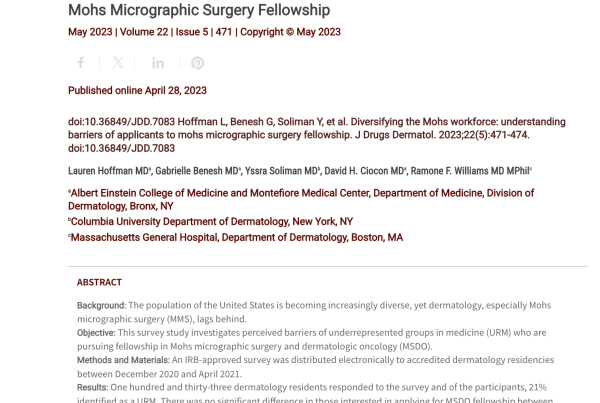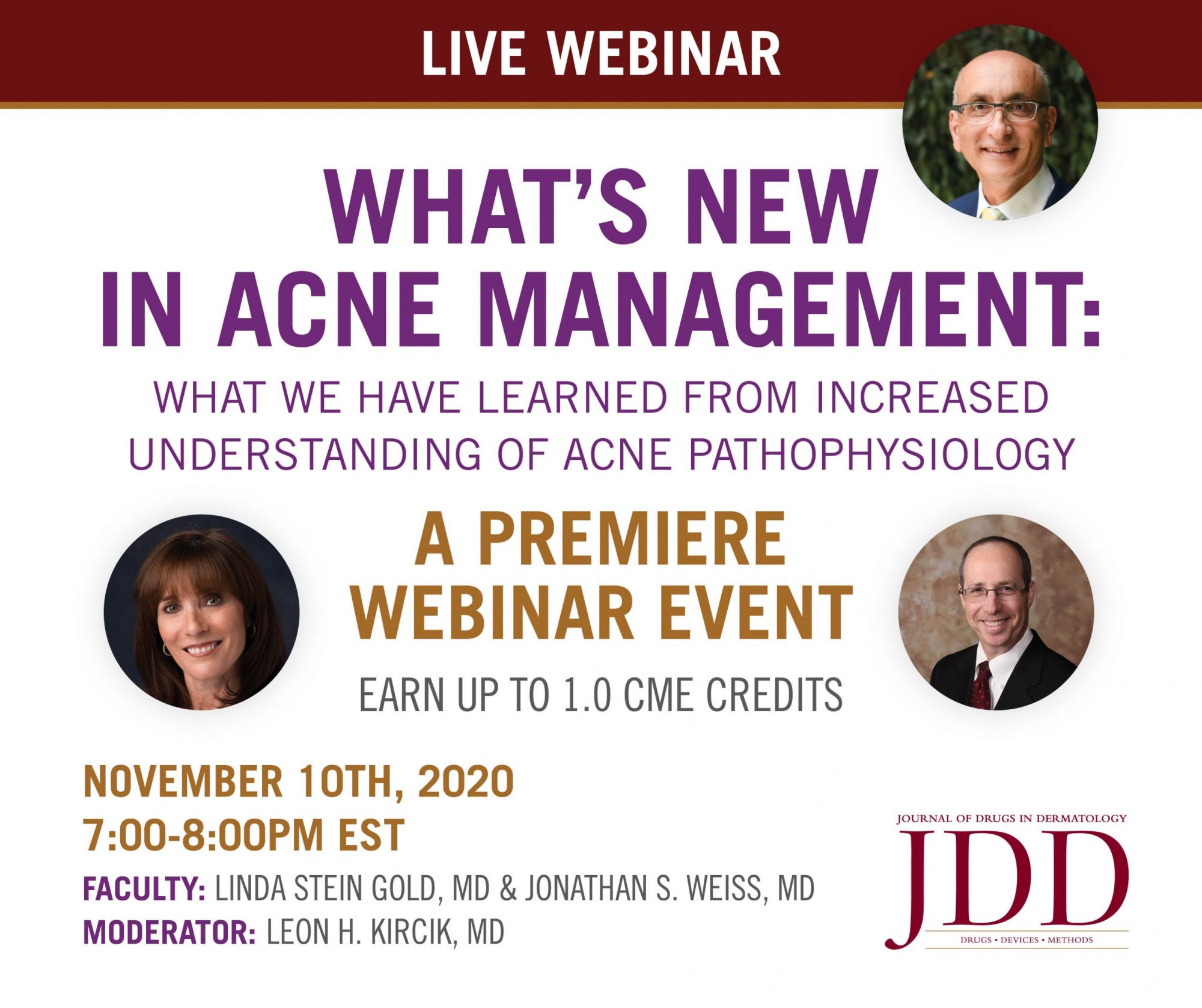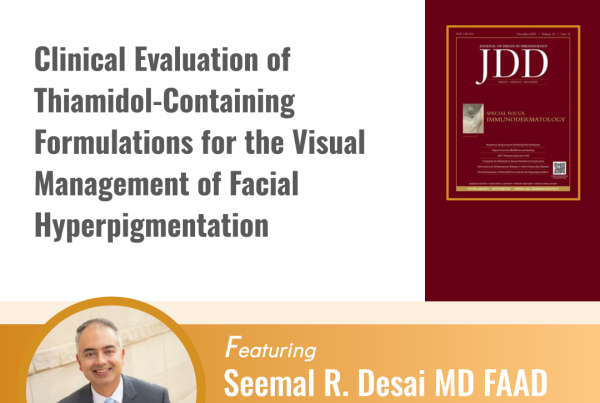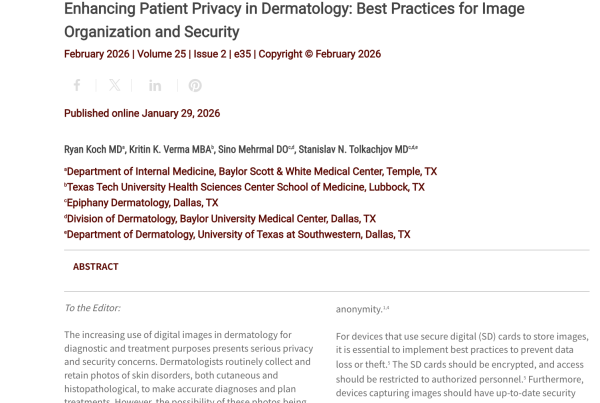What's New in Acne Management:
What We Have Learned From Increased Understanding of Acne Pathophysiology
Acne pathogenesis is multifactorial and not clearly understood; a key factor includes genetics and may result as in interplay of release of inflammatory mediators into the skin, follicular hyperkeratinization with subsequent plugging of the follicle, Cutibacterium acne (C. acnes), formerly Propionibacterium acnes or P. acnes, follicular colonization and excess sebum production.
FACULTY

Leon H. Kircik, MD
Clinical Professor of Dermatology
Indiana University School of Medicine
Mount Sinai Medical Center, New York, NY
Physicians Skin Care, PLLC
Louisville, KY

Linda Stein Gold, MD
Director, Dermatology Clinical Research
Henry Ford Health System
Detroit, Michigan

Jonathan S. Weiss, MD
Adjunct Assistant Clinical Professor of Dermatology
Emory University School of Medicine
Atlanta, GA
President & Co-Managing Partner
Georgia Dermatology Partners
(Formerly, Gwinnett Dermatology, PC)
You May Also Like










